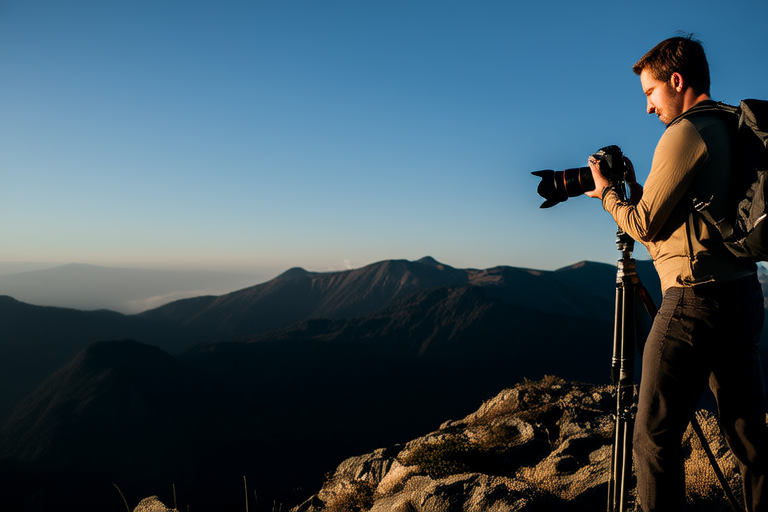Exploring the World: Your Ultimate Travel Guide

Exploring the World: Your Ultimate Travel Guide
Choosing Your Destination
Selecting where to go is often the most exciting yet challenging part of planning a trip. For first-time travelers, consider destinations that offer a mix of safety, accessibility, and cultural richness. Iconic cities like Paris, Tokyo, or Rome are excellent starting points due to their well-established tourism infrastructure. Seasoned explorers might opt for off-the-beaten-path locations such as Bhutan, Madagascar, or Patagonia, where unique experiences await.
Think about what you want from your trip. Are you seeking adventure, relaxation, history, or culinary delights? Align your destination with your interests. Research seasonal weather patterns and peak tourist times to avoid unpleasant surprises. Websites, travel blogs, and guidebooks can provide valuable insights into what each location offers.
Budgeting for Your Journey
A well-planned budget ensures a stress-free travel experience. Begin by estimating the cost of flights, accommodations, meals, transportation, and activities. Use online tools to compare prices and set realistic expectations. Remember to allocate funds for unexpected expenses, such as medical emergencies or last-minute itinerary changes.
Consider traveling during the shoulder season—just before or after peak tourist periods—to enjoy lower costs and fewer crowds. Opt for budget-friendly accommodations like hostels, guesthouses, or vacation rentals instead of luxury hotels. Eating at local markets or street food stalls can save money while offering an authentic taste of the culture.
Track your spending using a simple spreadsheet or a dedicated app. This practice helps you stay within your financial limits and adjust plans if necessary.
Packing Essentials
Packing efficiently is both an art and a science. Start with a list tailored to your destination’s climate and planned activities. Versatile clothing items, such as layerable pieces and quick-drying fabrics, are ideal for varying weather conditions. Don’t forget essentials like comfortable walking shoes, a reusable water bottle, and a compact daypack.
For international trips, include adapters for electronic devices and copies of important documents, such as your passport and travel insurance policy. A small first-aid kit stocked with pain relievers, band-aids, and any prescription medications is also wise. If you’re venturing into remote areas, consider bringing a portable charger and a basic survival kit.
Remember to pack light. Overloading your luggage not only makes travel cumbersome but also increases baggage fees. Stick to the essentials and leave room for souvenirs or items you may purchase along the way.
Cultural Etiquette and Respect
Understanding and respecting local customs is crucial for meaningful travel experiences. Before arriving at your destination, research cultural norms related to dress, greetings, dining, and behavior. In some countries, modest attire is expected, especially when visiting religious sites. Learning a few phrases in the local language, such as “hello,” “thank you,” and “please,” demonstrates respect and fosters goodwill.
Be mindful of photography etiquette. Always ask permission before taking pictures of people, particularly in rural or indigenous communities. Avoid gestures or actions that could be misinterpreted; for example, pointing with your feet or showing the soles of your shoes is considered rude in many cultures.
Embrace differences with an open mind. Traveling is an opportunity to learn and grow, so approach unfamiliar traditions with curiosity rather than judgment.
Safety Tips for Peace of Mind
Your safety should always be a top priority. Before departure, check government travel advisories for updates on potential risks in your chosen destination. Register with your embassy or consulate to receive alerts and assistance in case of emergencies.
Keep your belongings secure by using anti-theft bags and locking valuables in hotel safes. Avoid displaying expensive jewelry or electronics, which can attract unwanted attention. Stay aware of your surroundings, especially in crowded areas or unfamiliar neighborhoods.
Invest in comprehensive travel insurance that covers medical emergencies, trip cancellations, and lost belongings. Carry a digital copy of your itinerary and share it with family or friends back home. Familiarize yourself with local emergency numbers and the nearest hospital or clinic locations.
Making the Most of Your Travel Experiences
To truly immerse yourself in a new place, step outside your comfort zone and engage with the local community. Attend festivals, explore markets, and participate in workshops or guided tours led by residents. These interactions provide deeper insights into the culture and create lasting memories.
Document your journey through journaling, photography, or sketching. Capturing moments allows you to reflect on your experiences and share them with others. However, don’t let the desire to document overshadow the joy of being present. Put down your camera occasionally and soak in the atmosphere around you.
Travel sustainably by minimizing your environmental impact. Choose eco-friendly accommodations, support local businesses, and reduce waste by refusing single-use plastics. Leave natural and cultural sites as you found them, ensuring they remain pristine for future visitors.
Final Thoughts
Traveling is one of life’s greatest joys, offering opportunities to broaden horizons, connect with diverse cultures, and discover new perspectives. Whether you’re embarking on your first solo adventure or adding another stamp to your passport, careful planning and an open heart will enhance every step of the journey.
Use this guide as a foundation for crafting unforgettable trips tailored to your preferences. The world is vast and full of wonders waiting to be explored—so pack your bags, embrace the unknown, and let the adventure begin!